French Courses
To see a full list of French courses please use the Texas Tech online catalog.
CMLL2306 Introduction to World Cinema: Global Bodies
This course introduces beginning cinema students to the analysis of films from around the world at once as works of art, approachable in formal terms as meaning-producing aesthetic structures, and as situated cultural productions, demanding to be understood in their historical, social, and political contexts. Connecting very diverse films that represent and reflect on the status and meaning of "global bodies", the course asks how the bodies—living and dead, idealized or fragmented, active or passive, and even animalized—of individuals and groups are experienced, constructed and socialized, exploited, controlled and liberated, desired and subjected to violence in a globalized world, as well as considering how individual bodies can allegorize, represent, and challenge or critique potent metaphors of collective embodiment.
FREN2390 French Culture: "Frenchspiration"
Taught in English
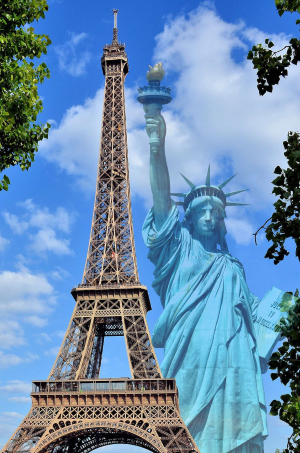
Our culture begins before we are even born and determines how we eat, laugh, speak, or decide what is right or wrong. However, we do not often think about our own culture, unless we are exposed to different values, beliefs, assumptions, and stereotypes. Sometimes it takes a comparison to think more deeply about who we are and where we come from. By learning about what makes the French so French, we can find points of connection and inspiration that will help us learn, appreciate, and become better global citizens. The aim of this course is to provide insight and spur discussion about the many points of connection, convergence, and collision between the French and American cultures in our contemporary societies. The students will redefine, problematize, and rethink the role of culture in everyday life in a world that is growing smaller due to technology, trade, social media, and travel. We will begin with a short history and geography of France and the French-speaking world and trace culture through media, education, music, food, film, fashion, politics, art, advertising, architecture, language, urbanization, and literature. We will be reading articles and chapters from multiple books treating Contemporary French Cultural Studies and watching clips and films in order to think, analyze, and discuss. Cultural curiosity is cultural capital. This course aims to help you discover how to ask the right questions, and support you in your search of answering them with your own experiences.
FREN2390 French Culture: Paris: City, Stage, Story
"Paris": the name of France's capital city conjures up images of sophistication and debauchery, glamour and fashion, art and literature, monarchy and revolution. Where do these images come from? How was "Paris" as we know and imagine it today constructed and produced, both by the vagaries of history and by the deliberate and unconscious choices of its rulers and citizens? Surveying the material form, political and cultural significance, and social and intellectual life of the city as they evolved from Gallo-Roman times to the present day, this course traces a multifaceted biography of Paris, exploring the continuities and changes that have marked two millennia of Parisian and European history by studying the city's developing urban fabric in the context of the major cultural moments and movements that have shaped and been shaped by it. The course considers the city as a functional structure and a lived public environment for its increasingly diverse population, but also as a stage or theater on and in which different regimes—feudal and absolute monarchies, empires, and revolutionary and liberal democracies—and individuals have performed and styled their ideologies and identities through architecture, urban planning, political pageantry, and even violence, but also the visual arts, fashion, literature and philosophy.
FREN3302 Major French Authors
A survey of major French writers. (CL)
FREN3303 French Conversation: Cultural Objects & French Society
This conversation course aims to increase students' linguistic and cultural fluency in French by engaging them in active discussion and debate around a wide range of social, cultural, and political topics ranging from French painting, poetry and film to advertising, the AOC system, and the "burkini" controversy. As well as developing oral comprehension and cultivating a richer verbal and conceptual vocabulary for speaking about the Francophone world, our discussions will offer opportunities to use French in different communicative contexts and improve mastery of different types of speech functions or modes: description, narration, circumlocution, comparison, logical argumentation, etc.
FREN3303 French Conversation
A recent sample course taught by Dr. Wood: Cultural Objects & French Society
This conversation course aims to increase students' linguistic and cultural fluency in French by engaging them in active discussion and debate around a wide range of social, cultural, and political topics ranging from French painting, poetry and film to advertising, the AOC system, and the "burkini" controversy. As well as developing oral comprehension and cultivating a richer verbal and conceptual vocabulary for speaking about the Francophone world, our discussions will offer opportunities to use French in different communicative contexts and improve mastery of different types of speech functions or modes: description, narration, circumlocution, comparison, logical argumentation, etc.
FREN3304 Grammar: A Comprehensive Review
A comprehensive overview of French grammar: verbs tenses, mood, pronouns, complements etc. Students demonstrate oral competence through correction pronunciation and intonation, manipulate complex grammatical structures in French, integrate syntactic and stylistic elements into writing.
FREN3306 Business French
Oral and written French, with special attention to idiomatic expressions currently in use in business and technical fields, more specifically in marketing, advertising and the stock market. Students carry out an advertising and marketing campaign. Students get prepared to solve conflicts in the workplace.
This course prepares for the DFP exam and is a component of the Global Readiness Certificate!
FREN4302 Advanced Grammar and Composition
Oral and written French, with special attention to idiomatic expressions currently in use in Business and technical fields.
FREN4303 Dialogues in French Culture
A recent sample of this course taught by Dr. Wood: Scènes politiques du théâtre français
Politics is in many respects a form of theater, a public staging of personalities, principles, identities and ideologically charged emotions. Conversely, the theater has always provided a fertile space, provocatively disconnected from and yet related to reality, for representing political impulses and dilemmas, thinking through ideology's often contradictory demands, advocating or critiquing individual and collective commitments, and imagining alternative organizations of society and power. This course considers the place of politics in the French dramatic tradition, interrogating the moral and social stakes of plays written from 1636 to 1999 that reflect on the power, rights and responsibilities of the individual and the state; meditate on the roles of the leader and the subject; and confront issues of gender, class, and identity in early modern, modern and contemporary societies. Taught in an interactive seminar format, the course emphasizes the development of fluency in spoken French in various contexts—including group discussion, formal oral presentation, debate, and theatrical performance—while introducing students to a diverse range of Francophone playwrights and honing their skills in literary interpretation.
FREN4304 Commercial French
Oral and written French, with special attention to idiomatic expressions currently in use in Business and technical fields. Students will learn to write a CV, a cover letter and conduct a job interview. They will complete a Company presentation of their own choosing.
This course prepares for the DFP exam and is a component of the Global Readiness Certificate!
FREN4305 Cultures of the Francophone World
A recent sample of Dr. Edwards' course:
Survey of French-speaking cultures of the world, including history, arts, customs
and daily life.
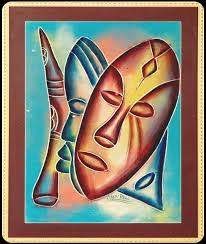
This course looks at the cultures of Francophonie, the diverse French-speaking cultures located outside of France. In this course, we examine:
- The history, geography and peoples of the various French-speaking countries and regions
- The social, political and culture history of these regions and countries
- The role of men and women, politics, social class, and ethnicity in these places
- Various aspect of the culture: music, food, film, arts, literature, religion, etc.
- Aspects of daily life, customs and traditions of these places
- The way that French differs in these regions/countries in the way it sounds and is spoken
- The way that French functions in the society of these cultures: who speaks it, when and why
- The uniqueness of the cultural and ethnic identities of these places and how they differ from one another and from the culture of France.
FREN4308 French & Francophone Culture Through Film
A recent course taught by Dr. Wood:
Fictions identitaires et formations du désir
This course approaches the cultures of the 20th- and 21st-century French and Francophone world through their cinema and vice versa. Putting selected films from different eras and about diverse geographical and social milieux into intertextual conversation, it encourages a simultaneously contextual and formal approach to Francophone cinema, exploring films as works of art whose aesthetic dimensions cannot be separated from their significance as expressions and interrogations of culture and ideology. The course focuses on cinematic representations of the ways in which culture, identity and desire are at once constructed and contested by the frontiers, margins and fault-lines that define individual and collective "selves"—understood in terms of nation, class, race, family, gender, sexuality, ethics, and historical memory—but also divide them internally, creating tensions, conflicts and crises that lie at the heart of the challenging, thought-provoking films we consider.
FREN4315 The French Short Story
This course provides an introduction to the richness and diversity of the French short story from various critical perspectives that take into account its formal aspects and historical presence. Students will familiarize themselves with the two dominant short-story forms in France—le conte and la nouvelle—analyzing representative examples and identifying their recurring structures and themes.
An upcoming course by Dr. Voeks
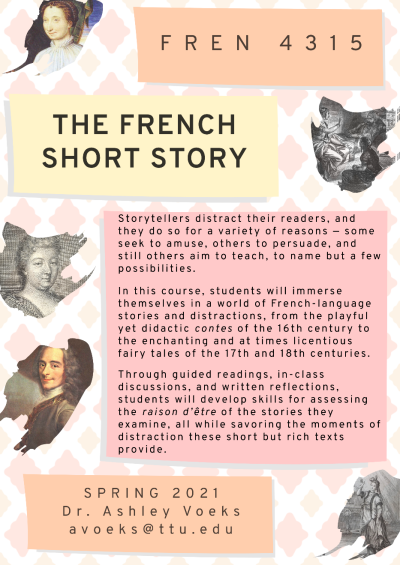
FREN4317 Readings in French Literature and Culture
A selection of literary texts across the centuries.
FREN4322 French Civilization: The Gourmet Culture of France
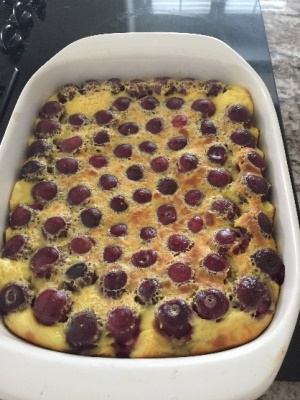
Dr. Edwards developed this sample course:
A survey of French civilization from the Middle Ages to the present: literature, art, music, philosophy, science, and history. Readings, slides, films, and tapes. Conducted in French.
Students learn the cultural significance of food in France and Francophone countries by examining regional specialties, etiquette, culinary techniques, and food in various contexts.
FREN 5305/LING 5322 - Practicum in Language Teaching: Teaching Methods
This course is designed for graduate students preparing to teach second and foreign languages to adults at the secondary or tertiary levels and aims to help you in your development as an effective, reflective practitioner-scholar in the teaching of languages, with a specific focus on the goal of understanding and implementing contextualized language instruction. Topics include: linking pedagogical practice with second language acquisition research, understanding and applying diverse perspectives on the role of grammar, culture, and the use of L1 in the L2 classroom; developing your ability to match texts, tools, and tasks to meet learning objectives; and developing familiarity with professional organizations, scholarly journals, conferences, and other resources related to L2 teaching and learning. Through a combination of weekly face-to-face class meetings and interactive online discussions and readings during the week, this course consists of learning activities that invite collegial discussion among peers through critical inquiry into pedagogical concepts; ongoing reflection on your teaching praxis; and creative, collaborative development of instructional activities in order to meet this overarching goal.
FREN5310 Marches médiévales, rencontres renaissantes
This seminar focuses on medieval and Renaissance French representations of and engagements with the margins or limits of the European Christian world, drawing particular inspiration from the medieval concept of the marche or borderland as a physical and intellectual space of cohabitation and confrontation, intermingling, hybridization and indeterminacy that troubles—even as it provides resources for constructing—stable, binary notions of self and other, identity and difference. Conceived geographically and culturally, but also (and often simultaneously) ontologically, the frontiers of medieval and Renaissance France function in travel narratives and literary fictions as fruitfully provocative zones of encounter with alternative models of society, nation, ethics, faith, embodiment, and humanity itself. In premodern texts, border experiences both challenge the normative structures and logics of European culture, providing opportunities for self-critique, and prompt transformations of those structures that allow for the more effective exclusion or assimilation and appropriation of various kinds of alterity, whether foreign or domestic, fictional or historical.
FREN5319 Nineteenth-Century Literature
This seminar takes as its point of departure the historical and theoretical dimensions of the nineteenth-century novel with special attention given to the competing ideologies that make up the period. The novel was able to mediate many upheavals in a century which included technological revolutions, political instability, and the emergence of a powerful bourgeoisie class. In many prefaces, the authors set their sights on painting a more complete picture of nineteenth-century French society. Despite an ideal of truthfulness and reliability in the narrative voice, the novel remains a highly specialized art form whose techniques evolved radically in the nineteenth century. The extensive use of detailed description, subversive narrative strategies, and inventive structures contribute to making the novel highly "aware" of its status as a work of art. This course will also serve as an introduction to contemporary criticism on the novel.
FREN5320 Twentieth Century Literature: "Creative Writing: French as an Adopted Literary Language" "Le français comme langue de plume"
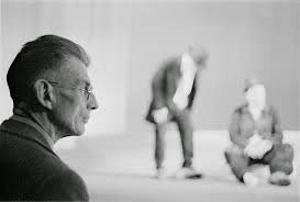
Depuis des siècles, la littérature française a eu un rôle barométrique très important dans le monde littéraire. La mystique de la littérature d'expression française a souvent été la source des débats critiques et analytiques. Les exemples de la grande réputation des écrivains français sont divers—les jeux de mots de Rabelais, la phrase parfaite de Flaubert, la description élancée de Balzac sont devenus le modèle et l'inspiration pour de nombreux écrivains dans le monde. Au 20e siècle, d'après Eduardo Manet, « la culture française était à son zénith. » Les écrivains reconnus publiaient énormément et c'était aussi le moment de la naissance de nouveaux genres comme la poésie concrète et sonore, le surréalisme, le théâtre absurde et le nouveau roman. L'intersection entre le visuel et le poétique se trouvait dans le cinéma et tout cela a inspiré un environnement fécond pour la critique et la théorie littéraire.
Ce cours se focalise de manière créative sur les écrivains qui ont choisi d'utiliser la langue française pour écrire, même si ce n'est pas leur langue maternelle. Les livres choisis traitent de genres différents qui interrogent le rôle de la langue française dans leur création. Au travers d'une analyse des œuvres créatives écrites par des écrivains allogènes, il est possible de percevoir l'évolution des particularités structurales, sonores, et poétiques de la langue française du 20e et 21e siècles.
FREN5320 Twentieth Century Literature: "From Classical to Contemporary: Family Dysfunction on the French Stage"
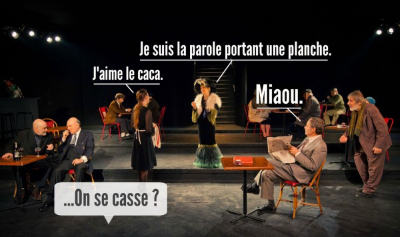
La famille est une formule classique omniprésente dans la comédie et tragédie françaises depuis des siècles. La structure et les politiques familiales fournissent l'intrigue d'une manière différente dans chaque période et dans chaque genre. Dans Le Tartuffe de Molière (1664), par exemple, les relations complexes entre les personnages mettent l'emphase sur l'hypocrisie de la politique religieuse de l'époque. D'une autre façon, les scandales et l'inceste dans Phèdre (1677) de Racine pimentent le théâtre français avec une vision critique de la monarchie absolue.
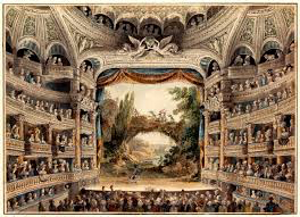
Dans un monde qui devient de plus en plus un village global, analyser le théâtre à travers les relations familiales nous pousse à examiner nos relations de manière micro—à travers les affinités et intimités que nous avons avec notre communauté—et de manière macro entre les cultures, les ethnicités et les peuples. Quelles sont les contraintes ? Sont-elles génétiques, psychologiques ou émotionnelles ? Comment peut-on comprendre le lien que nous avons avec notre famille comme un discours social plus large ? Comment les connections ou les divisions entre les personnes contribuent à un sentiment communautaire ou national ? Regarder le langage, le dialogue et la communication du microcosme de la famille peut être élargie pour nous aider à comprendre les liens et les aversions qui nous connectent. Cela dévoile les connexions intimes pour les rendre publiques.
FREN5321 French Cinema
The story of French cinema is a narrative of its transformations: from a technological innovation to a form of divertissement, from a documentary to the mise en scène, and from a narrative art to its own art form. As such, we will also be looking at the theoretical dimensions of cinema: the signification of techniques such as camera angles, montage, slow motion, zoom, etc. This course seeks to provide an overview of French cinema, an appreciation of the works which brought new techniques and perspectives to French cinema.
FREN5327 French Civilization
This course will focus on the development of French culture from the nineteenth century to the present day. It will deal not only with key politico-historical moments from the past but the multiples ways in which they have left a lasting mark on today's France. Students will explore art, philosophy, history, politics, food and architecture from critical perspectives which emphasize modes of cultural exchange and meaning.
FREN5328 African-Caribbean Literatures and Cultures
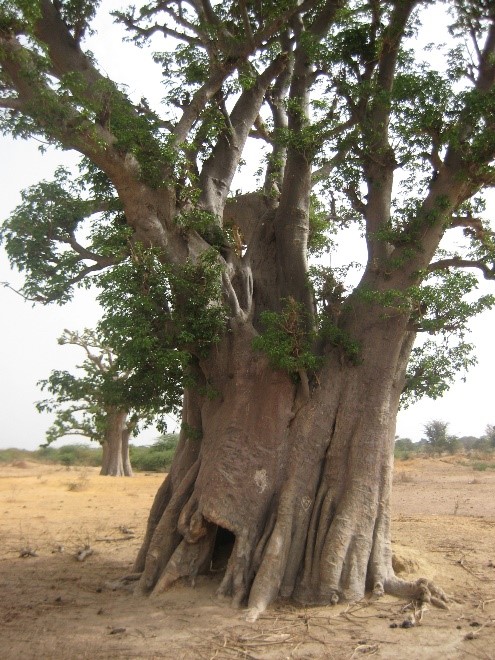
Dr. Edwards examines Historical to Postcolonial Realities
Francophone Literature and Culture (3). Readings and topical studies relating to French-speaking cultures (in Africa, Europe, U.S., Quebec, and Caribbean) and French and Francophone culture that may require special treatment. The main purpose of the course is to develop creative, critical and analytical skills through writing, reading, collaborative work, peer-review, small group debates, and student-led discussions. We will focus our study on literary works (poetry, novels, short stories, theater) written mostly by Francophone writers from diverse horizons. This course introduces students to the cultural diversity of Francophone culture and literature and explore the various repercussions of French language on local cultures and ways of life. We explore diversity issues in Francophone literatures through various literary genres: variable focus may combine genre and topic.
FREN5328-002 Quebec Culture and Literature
This course consists of an overview of the history of Canada and Quebec and its study
through twentieth century Quebecois literature and culture. We will focus on some
of the most important writers and poets, as well as on Diasporic culture and “migrant”
cultural productions. We will study how their work simultaneously expressed socio-cultural
concerns, contributed to reflect on essential issues in contemporary Quebec and Canada
and transformed their societies, cultures, and identities by inducing new themes,
debates and writing techniques, by expressing contemporary ideological issues and
by developing modern aesthetic movements. Emphasis will be placed on the literary
aspects of the works read as well as on their historical and contemporary political
and artistic contexts.
We will also study literary and critical theory concepts, and view and discuss documentaries
and films on the authors depending on time and availability.
FREN5329 Literary Criticism and Theory
This course provides an introduction to the major principles of literary criticism and theory from both a historical and theoretical perspective. The historical dimension involves charting the flow of ideas that make up literary discourse in France and elsewhere. How was theory introduced, received and exported from France? Is there a French hegemony in literary theorization? The formal dimension of the class considers theory in its forms and structures. How do we speak about the complex relationship between language and meaning, between theory and the literary text, between theory and literary history? Is theory itself a specific genre? Students will gain in their appreciation and knowledge of the major movements in literary criticism.
FREN5330 An advanced course on French translation
Dr. Edwards develop this course to cater to our "French for professionals" student
population
This course is intended to present translation strategies to students who are proficient
in French and have a very good command of English. It is a course in translation practice
and translation method which encourages students to be aware of the problems which
arise in translating various kinds of texts from French to English and to develop
strategies for overcoming these problems. The course helps students increase their
awareness of the different ways in which the two languages express concepts. It offers
a variety of material for translation including literary, journalistic, consumer-oriented
and factual texts, and suggests ways of ensuring that the end product (the translation
into English or French) is both accurate and idiomatic.
This course prepares students for the American Translators Association Exam
CMLL French Language & Area Studies
-
Address
CMLL Building, 2906 18th St, Lubbock, TX 79409 -
Phone
806.742.3145
